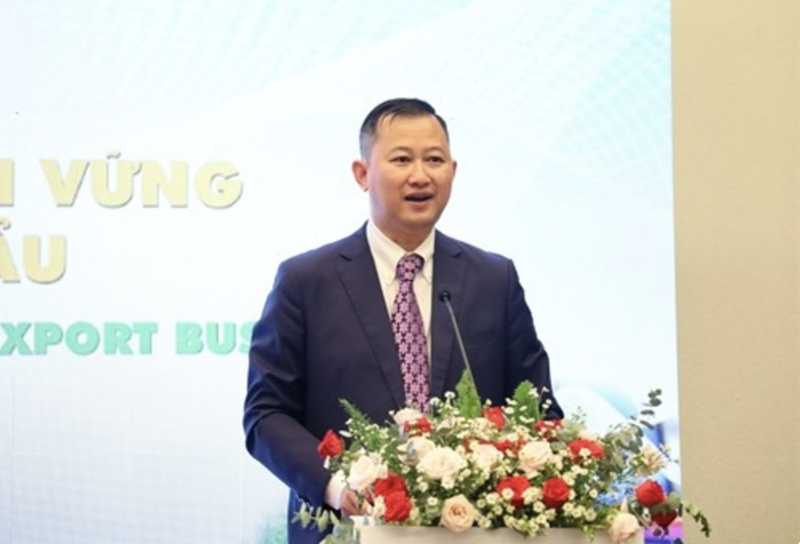Addressing a seminar in Ho Chi Minh City on September 5, Director of the Ho Chi Minh City Investment and Trade Promotion Center (ITPC) Tran Phu Lu said that Vietnam has strong potential to become a logistics hub, with its 3,260 km coastline, deep-water ports, airports, railways and extensive transport networks.
    |
 |
|
Tran Phu Lu, Director of the Investment and Trade Promotion Center of HCM City, speaks at the seminar “Green Logistics – A Sustainable Development Trend for Vietnamese Export Businesses” in HCM City on September 5. (Photo courtesy of ITPC) |
The sector has grown 14-16% annually, reaching a market size of 45-50 billion USD, supporting exports from electronics to agro-fisheries, he said.
However, logistics costs remain high and firms operate in a fragmented manner with weak regional links, noted HCM City Logistics Association Vice President Truong Tan Loc. Environmental challenges such as emissions and waste are also pressing.
International regulations, including the EU’s Carbon Border Adjustment Mechanism (CBAM) and the Corporate Sustainability Due Diligence Directive (CSDDD), will soon require exporters to meet strict carbon and ESG standards. Green logistics has become a trade passport, not just social responsibility, Loc said.
Examples of progress include Cat Lai Port, where full ePort adoption cut clearance times from hours to 15-20 minutes, saving 1.5-2 million USD in fuel annually and reducing carbon emissions with all-electric cranes. AI-enabled route optimization has cut fuel use by 15% and delivery times by 25%.
Yet the sector still relies heavily on road transport. Businesses have called for faster implementation of major logistics projects and a shared Port Community System in the Southern Key Economic Zone. Customs digitalization is also advancing, with automated clearance now processing “green channel” shipments in 1-3 seconds.
Florence Lee, Regional Sales and Marketing Director at GEODIS, noted freight transport generates over 10% of global carbon emissions.
Carbon reduction is now a passport to global markets. Sustainable logistics requires innovation and cooperation from both providers and clients, she said.
Source: VNA